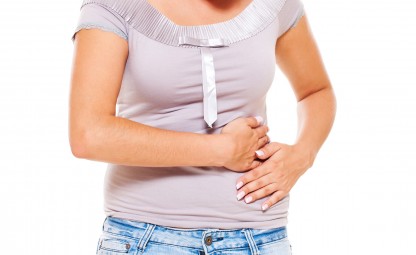7 Tips for Finding the Right IBD Diet
 Inflammatory bowel disease (IBD) is a chronic condition that causes symptoms such as diarrhea, abdominal pain, and intestinal bleeding. Both Crohn’s disease (CD) and ulcerative colitis (UC) fall under this category, and these conditions can greatly decrease quality of life. Up to 68% of people with CD report that their symptoms interfere with the ability to work.[1]
Inflammatory bowel disease (IBD) is a chronic condition that causes symptoms such as diarrhea, abdominal pain, and intestinal bleeding. Both Crohn’s disease (CD) and ulcerative colitis (UC) fall under this category, and these conditions can greatly decrease quality of life. Up to 68% of people with CD report that their symptoms interfere with the ability to work.[1]
Conventional treatment includes anti-inflammatory drugs and surgical options, which both present many side effects and complications,[2] and often aren’t even effective. Clearly, alternative treatment options are necessary to better help IBD patients find relief. Current research suggests that one of the simplest strategies may be to alter diet. But what is the best IBD diet?
The link between diet and IBD
Both genetic predisposition and environmental factors influence IBD.[3] In recent years, there has been a massive increase in IBD prevalence across the globe. One of the proposed explanations for this is the spread of the “Western” diet, which seems to be resulting in poorer digestive health. Some of the mechanisms by which diet could influence IBD are through producing an immune response to dietary antigens, affecting gastrointestinal permeability, and altering the gut microbiome.[4]
Several studies have found that people with IBD have a different composition of bacteria in the GI tract than people without the condition.[5] Researchers suggest that manipulating intestinal bacteria, whether to rid it of bad bacteria or boost the growth of good bacteria, may ease symptoms for people with IBD. Because what we eat can greatly change the internal environment of our digestive system, diet can either harm or heal diseases of the GI tract. A study in 2013 found that a majority of people with IBD avoid certain foods to treat their IBD symptoms and believe that food can have a negative impact on their disease.[6]
Find the best IBD diet
The best diet for treating IBD symptoms may be different for everyone. Many IBD patients have unique food triggers or intolerances, so treatment of IBD with diet will likely require some trial and error, and results may take time to appear. However, there are some general guidelines to try.
- Keep a food diary. Identifying specific triggers is important in learning what foods you might need to avoid in your diet.[4] Keep track of what you eat and your symptoms every day to identify trends.
- Try an elimination diet. Learn how to do an elimination diet here. This is an easy way to test yourself for food intolerances and is suggested as a promising approach for finding an individually tailored IBD diet.[7]
- Adhere to an anti-inflammatory diet. An anti-inflammatory diet can help to reduce inflammation and thus help relieve symptoms. Eating plenty of fresh fruits and vegetables, lean meats, and a source of omega-3s while avoiding refined carbohydrates, saturated fats, and processed foods can combat inflammation. A small case study showed that an anti-inflammatory diet may have potential as a therapy for IBD.[1]
- Reduce insoluble fiber. Intact fiber can cause problems for many patients, especially during flare-ups. Softening or pureeing food and avoiding foods with stems or seeds can help.[1]
- Try going gluten-free. A very recent study found that more than half of IBD patients trying a gluten-free diet reported improvement in symptoms and close to 40% fewer flare-ups.[3]
- Limit excess carbohydrates. Carbohydrates can contribute to symptoms of IBD and are especially important to avoid during flare-ups. Diets high in refined carbohydrates are also linked to the onset of CD.[4]
- Take a probiotic. A probiotic can help to keep the proper balance of bacteria in your gut, which is essential for digestive health.[7]
Finally, it is important to make sure that when changing your diet you are still getting proper, well-rounded nutrition. Avoidance of foods can sometimes lead to a reduction in overall food consumption or a lack of appropriate nutrients. Be careful in making changes and consult with a doctor or nutritionist to help maintain a balanced diet.
Share your experience
Have you ever used diet to treat IBD? What kind of IBD diet works for you? Please share your experience in the comments sections below.
[1] Gastroenterol Nurs. 2014 May-Jun;37(3):206-16.
[3] Inflamm Bowel Dis.2014 May 23.
[4] Clin Gastroenterol Hepatol. 2013 Oct 6.
[5] J Crohns Colitis. 2014 Apr 14.


 Ask the EN Experts March 2025
Ask the EN Experts March 2025  Vegan Diet Better Than Omnivore Diet for Cardiovascular Health
Vegan Diet Better Than Omnivore Diet for Cardiovascular Health 